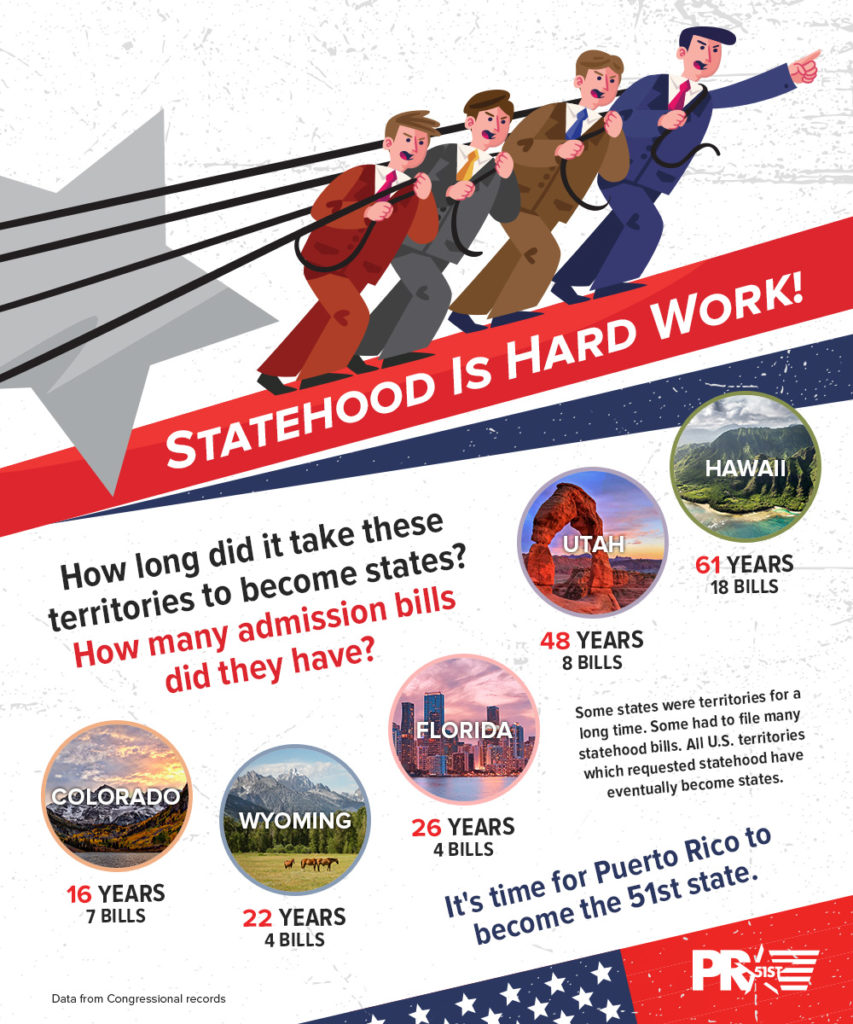Statehood got 57% of the votes in the most recent referendum. Christina D. Ponsa-Kraus and Julio Ricardo Varela discussed this very question on the Latino Newsletter podcast.
Quick review: Puerto Rico has now had seven plebiscites. A plebiscite is a vote taken to get the opinion of the voters. Plebiscites generally do not result in any action from governments. By their nature, they are usually nonbonding. “Every time we vote,” said Ponsa-Kraus, “we are making a statement.” In every referendum in this century, the statement has been the same: Puerto Rico wants statehood.
“Congress needs to make an offer, not just sit there and watch us voting and do nothing,” she continued. “We’re still trying to persuade them to act.”
“Here we go again,” said Varela.
Ponsa-Kraus agreed, pointing out that Puerto Rico has been trying to get Congress to take action for more than a century — and that Puerto Rico had been going through a similar process with Spain before the work with Congress began.
Other methods
Ponsa-Kraus mentioned the idea of a constitutional convention. She said it would be just like a bigger and more complicated version of the referendum, in which Puerto Rico would vote and present demands, and Congress would once again be free to ignore it. “It would be demeaning,” she said.
She went on to talk about activism and lobbying. The goal should be to have Congress present the options they’re willing to implement and then let Puerto Rico vote on that, with a commitment from Congress to implant the chosen solution. This is what the Puerto Rico Status Act is trying to do.
Obstacles
“For the best part of 70 years,” she said, “we mainly battled over what Commonwealth was.” Statehood and independence were clear options, and still are.
Supporters of commonwealth claimed it was a non-colonial, non-territorial status. They offered “enhanced commonwealth,” not the current status, and it was that fantasy that people voted for. Ponsa-Kraus pointed out that the PROMESA board’s power in Puerto Rico makes it crystal clear that the territory does not have sovereignty. This was an enormous shift in the outlook of people in Puerto Rico.
Commonwealth opponents said it is not guaranteed autonomy, we’re still subject to Congress under the Territory Clause, and that gives Congress the power to do what it pleases with Puerto Rico. “Commonwealth” actually means nothing but the status of an unincorporated territory. Now that people recognize this truth, Ponsa-Kraus said, and the passage of the Puerto Rico Status Act in the House in 2022, “commonwealth” is really off the table.
“I don’t think it’s a happy thing that Congress has control,” she said, “but it’s a reality.” The debate over Commonwealth allowed Congress to ignore the voice of Puerto Rico. Leaders of that movement continue to agitate for “enhanced commonwealth” and to have this unconstitutional option on the ballot even though it has been soundly rejected by all three branches of the federal government. This can encourage Congress to fall back on the claim that Puerto Rico just has to make up its mind. In fact, Congress needs to step up and take action.
The future
Ponsa-Kraus pointed out that people fighting against slavery, fighting for the vote for women, fighting for civil rights in the states in 1960 — they probably all sometimes felt that their causes were hopeless. “They didn’t give up,” she said, and those fighting for decolonization must also not give up. Slavery has ended, women have the vote, the laws have changed to favor equal rights for all people, and that has happened because people continued to fight for their causes through the discouraging times.
Other territories which have become states have held multiple plebiscites. In many cases, people voted against statehood at first. When they were ready for statehood, they voted for it and were admitted by Congress. Sometimes it took many statehood bills to push through the admission of the territory as a state. We are closer to statehood now than ever before. Do you have a new representative in Congress? A new Senator? Reach out to them and make sure they know that Puerto Rico’s status matters to their constituents.








No responses yet